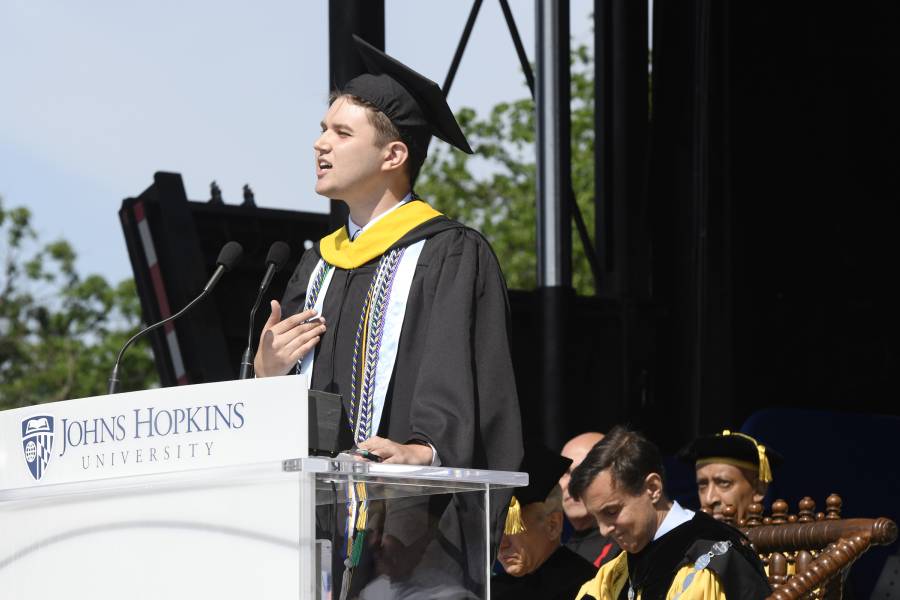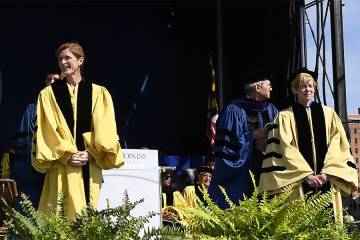Remarks as delivered by Johns Hopkins University senior class president Nathan Mudrak at the universitywide Commencement ceremony.
Y'all, we did it. Amidst remarkable circumstances, we leave with a degree from the Johns Hopkins University. All those late nights, all those P-sets and papers, they all were for this moment.
This is the moment we celebrate you. And celebrate we shall—with graduates returning to walk the stage for the first time since 2019. We're getting back to normal.
Normal. That's a word I've been reflecting on a lot lately. Our class, the Class of 2022, is the last remaining class to have had a full pre-pandemic year on this campus, and the first to have experienced the near full return, this "new normal." Our time here has been marred by tragedy, but it has also revealed to us something miraculous: our capacity for rapid change.
In the span of a week, American society screeched to a grinding halt. We developed new ways to work and to socialize, to learn and to connect, upending the daily routines of each and every one of us.
We did what was before unimaginable. We took exams from our childhood bedrooms, we helped turn a baseball stadium into a mass vaccination site. We took to the streets to protest racial injustice, to preserve democracy, to make clear what society would no longer accept.
Our class will remember life pre- and post-pandemic, the before and this after. We leave this place with a unique perspective we can use to reevaluate what we take to be "normal," asking ourselves what we will no longer tolerate and for what we remain nostalgic.
Because normal wasn't perfect. Normal was 356 million children living in extreme poverty. Normal was studying in the country No. 1 in mass incarceration, with a disproportionate impact on people of color. Normal still is these things. But we now know, we've now experienced, that we can change what is "normal."
So knowing this, what will we continue to accept? When we crave to go back to the way things were, do we also crave that ability to look the other way, if we are so privileged? Because the past few years have laid bare for us the underlying cracks in the foundation of our society, cracks all too familiar to many. Will you continue to accept them?
Because you will be, sooner or later, in the position to influence the "normal" to which we return. So as you enter what comes next—that new institution, new job, new experience—remember this: a return to normal is not a return to perfection. Because you know that our actions are not justified simply by a return to the status quo, especially now that we know how readily the status quo can change.
When I first spoke to you at our first-year banquet, I told you that this is a class of history-makers. I'd like to add an addendum: This is a class of history-makers, so go make us a history to be proud of.
Thank you.
Posted in Student Life, Voices+Opinion
Tagged commencement 2022










